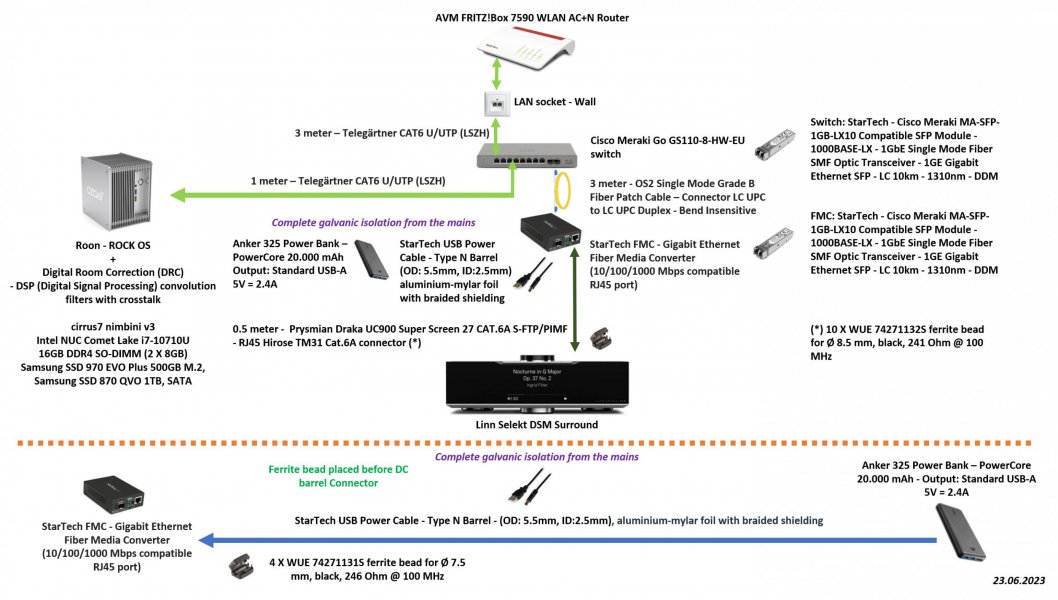Well, here's how Edison replied to my inquiry:For the single connection to your MU1, I wonder if Edison advised you that having a Silent Switch in addition to your Fiberbox II would be redundant. Given that both devices reclock with an OXCO, it's unclear to me what value a SS would add, when placed after a FBII.
I'm trying to decide between a single FBII Extreme, or a chain of FBII standard & SS Standard.
This is all, of course, for people like us who do not need the additional connections the SS offers.
Actually, your Streamer system is very simple just one Grimm MU1
Fiberbox ii would be the best option for your network enhancement.
Because Fiberbox have LAN to optical, Optical to LAN isolation and OCXO synchronous clock to optimize the 2 fiber modules to reduce jitter.
So you just connect Fiberbox ii between your unifi switch and Grimm MU1 will get the great improvement.
Below is the price for standard version and Extreme version.
Extreme will have deeper punching and wider sounds stage.
That said, I've heard/read that stacking certain network components optimized for audio can yield excellent results, as Mark mentions above. I'm thinking of doing the same.












